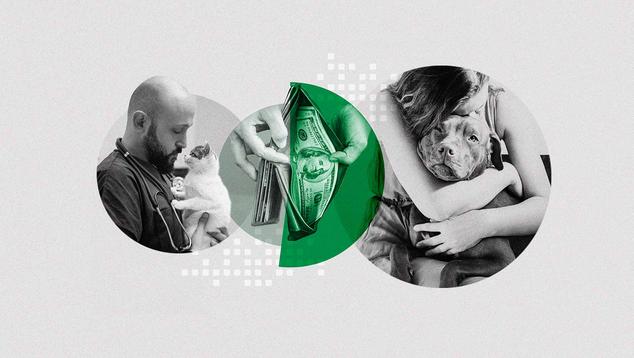WASHINGTON, D.C. — More than half of U.S. pet owners, 52%, report having skipped needed veterinary care in the past year, including 37% who say they have visited the veterinarian but declined one or more care recommendations and 15% who say they have not brought their pet to the veterinarian because of barriers such as financial considerations.
These results are from the PetSmart Charities-Gallup State of Pet Care study, conducted Nov. 13, 2024-Jan. 9, 2025, via the probability-based Gallup Panel with 2,498 U.S. adults who own at least one dog or cat.
Financial Considerations Are Leading Barriers to Care
Financial constraints are the primary barriers preventing pet owners from following recommended care. Among those who have declined services or skipped visiting the veterinarian, 71% cite cost as the key factor — whether because they could not afford it, they did not think it was worth the cost, or both. Across age, race and income levels, at least two-thirds of pet owners who declined care report that financial limitations have hindered their ability to access veterinary care.
The affordability of veterinary care is a challenge even for pet owners in the highest-earning households. One in three pet owners with annual household incomes of at least $90,000 who have not brought their pet to the vet or who declined recommended care say they skipped care because they could not afford it.
Beyond cost, 29% of pet owners have turned down care say it was because it was impractical or too stressful for their pet, highlighting the need for treatment plans that align with both financial realities and pet family needs.
Few Alternatives Offered to Those Facing Financial Barriers to Care
Despite the financial constraints preventing access to veterinary care, most pet owners who declined treatment were not presented with lower-cost alternatives — 73% of those who turned down care due to cost were not offered a more affordable option, and 46% were not given a treatment plan that better fit their pet’s practical needs.
Interest-free payment plans could be one solution. About two-thirds of pet owners (66%) say that if their pet required lifesaving treatment, the amount they would be able to pay for the cost of that treatment would be $1,000 or less. Sixty-four percent of all U.S. pet owners say that if their veterinarian offered them the option to pay the cost of lifesaving care over a one-year period through an interest-free payment plan, they could at least double the amount they previously said they would be able to afford for that care. However, fewer than one in four pet owners (23%) report ever having been offered a payment plan by their veterinarian for any treatment.
Consequences of Skipping Veterinary Care
Forgoing recommended veterinary care is associated with poor pet health outcomes. The most commonly declined services include diagnostic procedures (22%) and preventive care like vaccinations (18%), while 16% of all pet owners have declined elective surgeries, 11% have forgone recommended medications, and 7% have refused lifesaving surgeries. Among those who have declined care, 14% report that their pet's condition worsened, or their pet died.
Many pet owners know someone who has lost a pet after declining care. Three in 10 pet owners (30%) report that a friend’s or family member’s pet died in the past five years because they could not afford treatment. Furthermore, 11% of owners know someone who had to give up a pet because of financial barriers to care.
Implications
As veterinary care costs in the U.S. have risen more than 60% since 2014, ensuring access to it remains a significant challenge. Financial barriers force many pet owners to forgo recommended treatments for their pets, sometimes with life-threatening consequences. More than half of U.S. pet owners report having declined or skipped veterinary care due to cost, putting millions of pets at risk.
Expanding financial solutions could greatly improve access to critical treatments, while greater transparency in pricing and clearer communication about treatment options may help pet owners make more informed decisions. Ensuring that veterinary care remains affordable and accessible for all households will be essential to protecting the health and wellbeing of both pets and their owners.
To stay up to date with the latest Gallup News insights and updates, follow us on X @Gallup.
Learn more about how the PetSmart Charities-Gallup State of Pet Care Study works.



